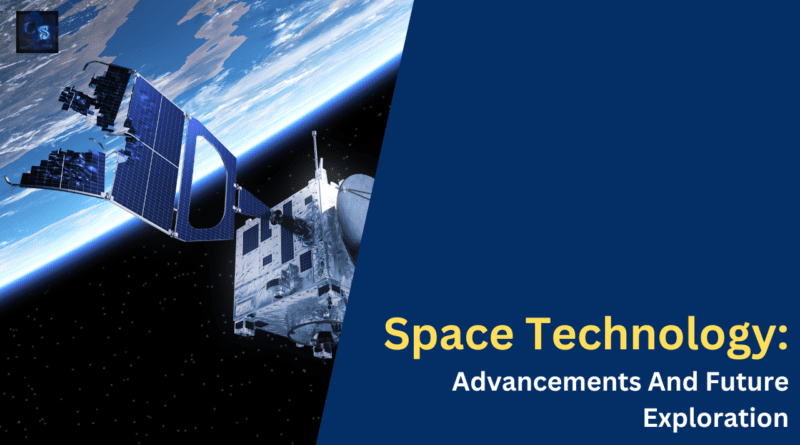Space Technology: Advancements And Future Exploration
Hello, guys, welcome to our blog. Here in this article, we will discuss Space Technology. advancement in space technology, and future exploration in space technology.
Ask questions if you have any electrical, electronics, or computer science doubts. You can also catch me on Instagram – CS Electrical & Electronics.
Also, read:
- What Is HiL, Hardware In Loop, Working, Tools Used In HiL
- What Is CPC (Common Powertrain Controller) ECU, Working of CPC
- UDS (Unified Diagnostic Services) Tutorials For Automotive Engineers
Space Technology
Space technology stands as a testament to human ingenuity, enabling the exploration and understanding of the vast cosmos beyond our planet. From the early days of space exploration to the current era of advanced satellite systems, space technology continues to evolve, providing invaluable insights and pushing the boundaries of scientific discovery.
01. Satellite Systems:
One of the cornerstones of space technology is the development and deployment of satellites. Earth observation satellites capture high-resolution imagery for applications ranging from weather forecasting and disaster monitoring to agricultural planning. Communication satellites form the backbone of global telecommunications, connecting people across continents and enabling seamless data transmission.
02. Space Probes and Rovers:
Space probes and rovers represent the robotic pioneers of space exploration. These autonomous vehicles are equipped with advanced instruments to study distant celestial bodies. Notable examples include NASA’s Mars rovers, which have provided invaluable data about the Martian surface, and probes like Voyager and New Horizons, which have ventured beyond our solar system, sending back unprecedented information about outer planets and interstellar space.
03. Human Spaceflight:
The endeavor to send humans beyond Earth’s atmosphere has been a hallmark of space technology. Human spaceflight missions, such as those conducted by NASA, Roscosmos, and more recently, private companies like SpaceX, showcase the capacity of technology to sustain life in space. These missions contribute to scientific research, and international collaboration, and inspire the next generation of space enthusiasts.
04. Space Telescopes:
Advancements in space telescopes have revolutionized our understanding of the universe. Telescopes like the Hubble Space Telescope and the James Webb Space Telescope provide unprecedented views of distant galaxies, nebulae, and exoplanets. They contribute to the exploration of the cosmos, leading to groundbreaking discoveries about the origins and evolution of the universe.
05. Space Exploration and Colonization:
Space technology plays a pivotal role in ambitious plans for human space exploration and the potential colonization of other celestial bodies. The development of spacecraft, life support systems, and sustainable habitats are critical aspects of these endeavors. Private space companies, alongside international space agencies, are actively engaged in shaping the future of human presence beyond Earth.
06. Space Tourism:
Recent advancements in space technology have opened up the possibility of space tourism. Commercial companies are working towards offering suborbital and orbital spaceflights for private individuals. This represents a shift in the accessibility of space, allowing civilians to experience the wonders of weightlessness and witness the curvature of Earth from space.
As space technology continues to advance, ongoing missions and future endeavors promise to unveil new mysteries of the cosmos and push the boundaries of human exploration. From satellite constellations enhancing global connectivity to rovers traversing distant planets, space technology remains a driving force in expanding our knowledge and presence in the universe.
Advancements in Space Technology
Space technology has witnessed remarkable advancements, revolutionizing our ability to explore and understand the cosmos. From cutting-edge propulsion systems to innovative satellite technologies, these developments are propelling humanity into a new era of space exploration and discovery.
01. Electric Propulsion Systems:
Electric propulsion systems have emerged as a game-changer in space exploration. Unlike traditional chemical rockets, electric propulsion relies on ionized gases (plasma) for thrust, offering higher efficiency and longer operational lifetimes. This technology enables spacecraft to conduct extended missions, reaching distant destinations with reduced fuel consumption.
02. Reusable Rocket Technology:
The advent of reusable rocket technology has ushered in a new era of cost-effective space travel. Companies like SpaceX have successfully developed and implemented reusable first-stage rocket boosters, significantly lowering the overall cost of launching payloads into space. This breakthrough has the potential to make space exploration more accessible and economically sustainable.
03. CubeSats and Small Satellite Technology:
Miniaturized satellites, known as CubeSats, have become a key focus of space technology. These small, modular satellites provide cost-effective solutions for scientific research, Earth observation, and technology demonstration. Their compact size allows for deployment in larger numbers, fostering collaborative and distributed space missions.
04. Space-Based Internet Constellations:
Ambitious projects aiming to provide global internet coverage from space have gained traction. Companies such as SpaceX with Starlink and OneWeb are deploying constellations of small satellites to create a network that can deliver high-speed, low-latency internet access to remote and underserved areas around the world.
05. Interplanetary Exploration and Sample Return Missions:
Advancements in space technology have facilitated interplanetary exploration, with missions targeting celestial bodies like Mars and asteroids. Robotic spacecraft equipped with sophisticated instruments conduct detailed surveys, and sample return missions aim to bring extraterrestrial samples back to Earth for analysis, offering insights into the composition of distant worlds.
06. James Webb Space Telescope:
The upcoming James Webb Space Telescope (JWST) represents a leap forward in observational astronomy. Positioned at the second Lagrange point, JWST will have advanced instruments capable of studying the universe in infrared wavelengths. This telescope is poised to revolutionize our understanding of the early universe, exoplanets, and distant galaxies.
07. Lunar Exploration and Artemis Program:
Renewed interest in lunar exploration has led to the Artemis program, aiming to return humans to the Moon. Advancements in space technology are facilitating the development of new lunar landers, habitats, and exploration systems. This program paves the way for sustainable human presence on the Moon and serves as a stepping stone for future Mars missions.
As space technology continues to advance, these breakthroughs not only expand our scientific knowledge but also lay the foundation for humanity’s sustained presence in space. With ongoing missions and ambitious plans for the future, the trajectory of space exploration is set to reach new heights, opening up possibilities for unprecedented discoveries and collaborations.
Future Exploration in Space Technology
The future of space exploration holds exciting prospects, with advancements in technology poised to propel humanity toward uncharted territories and deeper into the cosmos. From ambitious missions to distant planets to the development of cutting-edge spacecraft, the trajectory of space technology promises a future marked by unprecedented discoveries and expanded horizons.
01. Mars Colonization:
A pivotal objective in the future of space exploration is the potential colonization of Mars. Ambitious projects like SpaceX’s Starship aim to transport humans to the Red Planet. The establishment of sustainable habitats, life support systems, and resource utilization technologies are integral to the vision of creating a human presence on Mars.
02. Interstellar Travel:
Advancements in propulsion systems and energy sources are fueling the dream of interstellar travel. Concepts like solar sails, ion drives, and breakthrough propulsion technologies are being explored to enable spacecraft to travel beyond our solar system. While still in the realm of theoretical exploration, the pursuit of interstellar travel represents a profound step forward in humanity’s cosmic ambitions.
03. Lunar Gateway and Deep Space Exploration:
The Lunar Gateway, a space station orbiting the Moon, is envisioned as a staging point for deep space exploration. It will serve as a gateway for missions to the Moon, Mars, and beyond. Collaborative efforts involving international space agencies are underway to establish a sustainable presence around the Moon, paving the way for more extensive journeys into the solar system.
04. Asteroid Mining and Resource Utilization:
Space technology is advancing the concept of asteroid mining, where robotic spacecraft would extract valuable resources from asteroids. This could open avenues for sourcing rare metals and minerals, potentially fueling future space exploration endeavors and providing a sustainable supply chain for extended human presence in space.
05. Space Tourism and Commercial Space Stations:
The burgeoning field of space tourism is set to make extraterrestrial experiences accessible to civilians. Private companies are actively developing commercial spaceflight options, offering suborbital and orbital journeys for adventurous individuals. Additionally, plans for commercial space stations are emerging, creating opportunities for research, manufacturing, and leisure activities in microgravity.
06. Exoplanet Exploration and the Search for Extraterrestrial Life:
Advancements in space telescopes, such as the James Webb Space Telescope, will enhance our ability to study exoplanets and their atmospheres. The search for habitable exoplanets and signs of extraterrestrial life is a focal point for future exploration. Instruments with improved sensitivity and resolution will allow scientists to analyze distant worlds with unprecedented detail.
07. Artificial Intelligence in Space Exploration:
The integration of artificial intelligence (AI) is becoming increasingly vital for space exploration. AI-powered systems enhance autonomous decision-making, navigation, and data analysis. Robotic spacecraft, equipped with AI, can adapt to unforeseen challenges during long-duration missions, augmenting the efficiency and success of space exploration endeavors.
As the future unfolds, a collaboration between international space agencies, private enterprises, and research institutions will play a crucial role in realizing these ambitious goals. The fusion of technological innovation, scientific curiosity, and the collective human spirit is set to propel us into an era where the exploration of space becomes not just a vision but a tangible and sustainable reality.
This was about “Space Technology: Advancements and Future Exploration “. Thank you for reading.
Also, read:
- Advancements In Power Electronics For Energy Efficiency
- What Is HiL, Hardware In Loop, Working, Tools Used In HiL
- What Is CPC (Common Powertrain Controller) ECU, Working of CPC
- Exploring Electric Vehicles: Technology and Challenges
- The Future of Power Systems: Smart Grids
- What is XCP (Universal Measurement and Calibration Protocol)? Introduction, Working, Purpose, Applications
- What Is SIL Testing, Software-In Loop, Working, Purpose
Author Profile
- Content Writer








